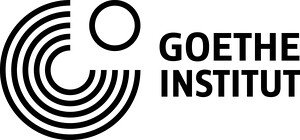Prinzregentenstrasse 1
80538 Munich
Germany
Hours: Wednesday–Monday 10am–8pm,
Thursday 10am–10pm
T +49 89 21127113
mail@hausderkunst.de
Dis/Embodied Realities
Symposium, Saturday, June 9, 2018, 1pm
Ed Atkins / Artist talk
Mariechen Danz / Performance
Brooke A. Holmes / Keynote lecture
Charles T. Wolfe / Moderation
Organized within the framework of the exhibition Blind Faith: Between the Visceral and the Cognitive in Contemporary Art, the symposium offers a multidisciplinary examination of how historical and current understandings of the body inform our perception of the surrounding world and influence models of subjectivity.
Brooke A. Holmes, Professor of Classics at Princeton University, will trace in her keynote speech the role occupied by the body since classical antiquity, marking the important shifts in our understanding of the human body in relation to the non-human world.
The performance Knot in Arrow: Ideographic Insulation (2018) is the latest iteration of Mariechen Danz’s performative practice in which she unmaps the erroneous moments of canonical knowledge transfer, turning instead to subaltern forms of understanding, particularly those stemming from the body as source for an alternative narrative of human experience.
A talk by the artist Ed Atkins will position his work with abject, animated avatar figures in the larger context of our contemporary perception of bodies as mediated via digital technologies.
The symposium will conclude with a panel discussion between all the participants moderated by Charles T. Wolfe, Ghent University.
The (After)life of the Cyborg
Symposium, Saturday, June 23, 2018, 11am
Cécile B. Evans / Artist lecture
Francesca Ferrando / Keynote lecture
Lili Reynaud-Dewar / Performance
Jennifer Parker-Starbuck / Moderation
Despite being published more than three decades ago, Donna Haraway’s seminal text A Cyborg Manifesto (1984) remains a key point of reference for artistic inquiry. The symposium will discuss the relevance of the cyborg in contemporary society. Today technological advances in robotics, artificial intelligence, and augmented or virtual reality make the cyborg look like a very real prospect.
Francesca Ferrando, Professor for Philosophy at the New York University, traces in her keynote the cyborg’s lineage into the present day and beyond, reflecting upon the challenges and revisions it has encountered in the face of technological and social change.
While Cécile B. Evans’ installation Sprung a Leak (2016) explores the influence of human-machine and machine-machine interactions on our emotions, Lili Reynaud-Dewar’s project TEETH GUMS MACHINES FUTURE SOCIETY (2016) redefines the so called “grill”—the metallic dental prosthesis with roots in hip-hop culture as an integral part of the utopian cyborg body.
The symposium will end with a panel discussion between all the participants moderated by Jennifer Parker-Starbuck, Royal Holloway, University of London.
Post-Colonialism
Decolonizing Third World Feminism: Latin American Women Artists (1960-1980)
Symposium, Friday, July 6, 2018, 11am
Confirmed speakers:
Barbara Carrasco, Lara Demori, Esther Gabara, Andrea Giunta, Sophie Halart and Giulia Lamoni
Conveners:
Burcu Dogramaci, Laura Karp Lugo and Stephanie Weber
The symposium will utilize the lens of feminism in order to excavate the historical moment of the time between 1960 and 1980, exposing its inherent contradictions, and probe its political and cultural specificities to emphasize and locate modes of resistance against patriarchal hierarchies and hegemonic forms of feminist identifications. In so doing, it will circumvent the notion that “third world” women constitute a homogenous category victimized by the combined weight of their traditions, culture and beliefs, and “our” (Eurocentric) history, as well as abstain from promulgating the notion of some form of “universal sisterhood” that assumes a commonality of gender experience across race and national line.
The symposium takes up the call of scholars, who advocate for a new analytical methodology that acknowledges the struggles of Latin American women in relation to their history, cultural context, economic class, and social identity. It will therefore strive to unveil the presence of multiple feminisms and their decolonizing subaltern positions; taking into account ethnic and cultural differences, in addition to exploring their political and economic implications.
The symposium “Decolonizing Third World Feminism: Latin American Women Artists (1960-1980)” is a co-operation with the Goethe-Institut.



